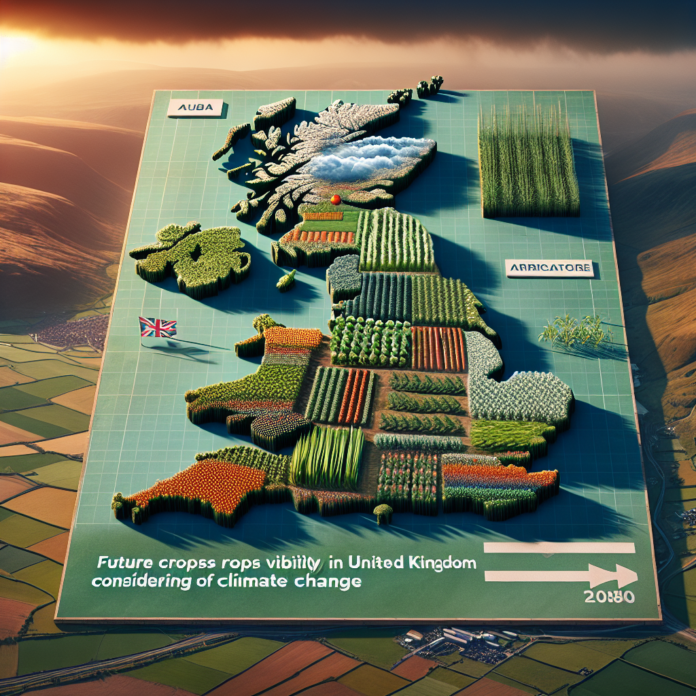Future Crop Viability in the UK Amid Climate Change
Scientists Forecast Future Crop Viability in the UK Amidst Climate Change
As climate change continues to reshape global weather patterns, scientists are increasingly focusing on its impacts on agriculture. In the UK, researchers are predicting which crops may flourish by the year 2080. These predictions are crucial for farmers, policymakers, and food security planners as they navigate the challenges posed by a warming climate.
Shifts in Climate and Agricultural Zones
The UK is expected to experience significant changes in its climate, including warmer temperatures and altered precipitation patterns. These shifts may lead to a reconfiguration of agricultural zones, allowing for the cultivation of crops that have previously struggled to thrive in the region. For example, traditional crops such as wheat may yield less due to heat stress, while more heat-tolerant varieties and crops like maize and soybeans could see increased viability.
Potential New Crops for the UK
Researchers are exploring the potential for a variety of new crops that could adapt to the anticipated climatic conditions. Crops such as quinoa, chickpeas, and certain varieties of fruit trees may become increasingly viable. Additionally, the growing interest in alternative protein sources may lead to the cultivation of legumes and pulses, which are not only resilient but also beneficial for soil health.
Impact on Food Security and Sustainability
The transition to new crop varieties is not just about adaptation; it also raises questions about food security and sustainability. As the UK seeks to reduce its carbon footprint and enhance local food production, the integration of diverse crops could play a critical role. This diversification can improve soil health, reduce dependency on chemical fertilizers, and promote biodiversity within agricultural systems.
Research and Innovation in Agriculture
To support these changes, ongoing research and innovation in agricultural practices will be essential. Scientists are working on developing crop varieties that are more resilient to pests, diseases, and extreme weather events. Precision agriculture technologies, such as soil sensors and drones, may also provide farmers with the tools they need to optimize crop management in response to changing conditions.
Conclusion
While the challenges posed by climate change are significant, they also present opportunities for transformation within UK agriculture. By identifying crops that are likely to thrive in the future, scientists and farmers can collaborate to create a more resilient and sustainable food system. As we move towards 2080, proactive strategies will be vital in ensuring that the agricultural landscape of the UK can adapt to the changing climate while meeting the needs of its population.


